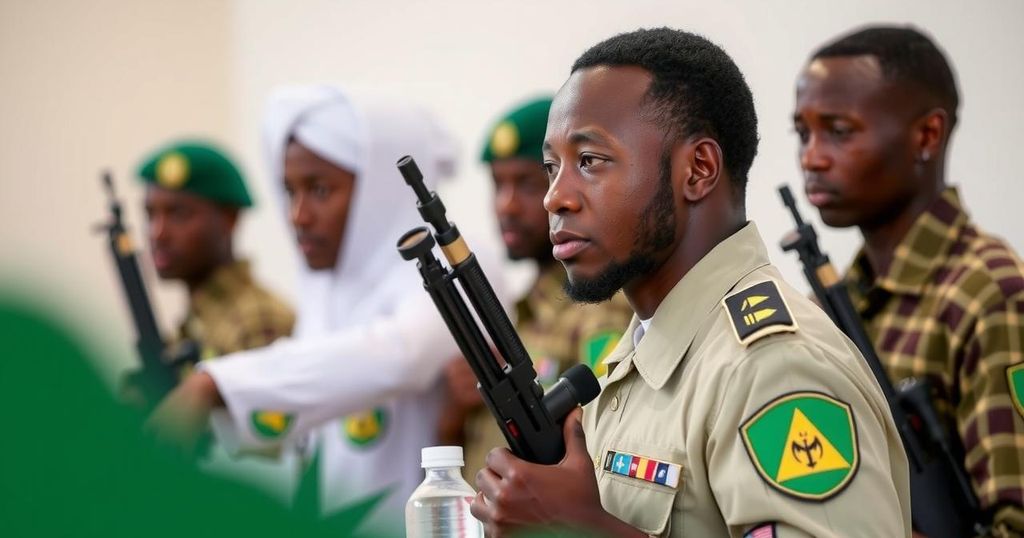The United Arab Emirates (UAE) has assured the United States that it will cease supplying weapons to Sudan’s Rapid Support Forces amid their ongoing civil conflict. This promise came from UAE officials to U.S. lawmakers, leading to a withdrawal of attempts to block a proposed $1.2 billion arms sale to the UAE. Lawmakers will monitor compliance with this assurance closely, as any violation may prompt renewed efforts to restrict arms sales.
In a significant diplomatic development, the United Arab Emirates has pledged to the United States that it will halt arms transfers to paramilitary groups involved in the ongoing civil war in Sudan. This commitment was made following concerns raised by U.S. lawmakers, who had threatened to obstruct a substantial arms sale worth $1.2 billion to the UAE. Among those lawmakers, Senator Chris Van Hollen revealed that the UAE’s promise was documented in correspondence from the White House, which indicated that assaults involving the UAE against the Rapid Support Forces would not continue. The White House’s letter, signed by Middle East policy coordinator Brett McGurk, noted that the UAE would not be transferring any arms to the RSF in the future.
As per the letter, McGurk committed to providing an assessment regarding the UAE’s adherence to this promise by January 17, a date that coincides with the impending transition in presidential power. The urgency of the situation has been acknowledged by Sen. Van Hollen, who expressed his intent to leverage arms sales as a mechanism to mitigate the violence in Sudan. He further indicated that renewed attempts to block such sales would occur if compliance on the UAE’s part is lacking.
Representative Sara Jacobs, who has been actively involved in monitoring this issue within the House, echoed similar sentiments, stating that UAE support is critical in reducing the RSF’s operational capabilities, thus making negotiations for a ceasefire more feasible. Despite previous allegations of UAE support for the RSF, the UAE government has consistently denied any involvement. United Nations experts have reported credible claims against the UAE regarding arms supplies to the RSF, prompting ongoing scrutiny from international observers.
The civil war in Sudan, which has resulted in an overwhelming humanitarian crisis, saw the Rapid Support Forces engage in hostilities against the national army, leading to the deaths of tens of thousands and significant displacement of civilians. Reports of foreign support, particularly from the United Arab Emirates, have intensified debates within the international community about arms sales and accountability in conflict zones. Lawmakers in the United States are particularly concerned about the ethical implications of arms supplies that could exacerbate violence in Sudan. The tense situation has underscored the delicate balance that governments must maintain between foreign relations and moral responsibilities towards global peace and security.
In conclusion, the UAE’s commitment to end arms supplies to Sudanese paramilitaries marks a crucial step in alleviating the conflict in Sudan. U.S. lawmakers have welcomed this assurance while remaining vigilant in monitoring compliance. The emphasis on accountability reflects an evolving U.S. foreign policy approach that prioritizes ethical considerations in arms sales. The coming months will be critical in determining the efficacy of these promises, highlighting the ongoing geopolitical dynamics in the region.
Original Source: www.barrons.com






